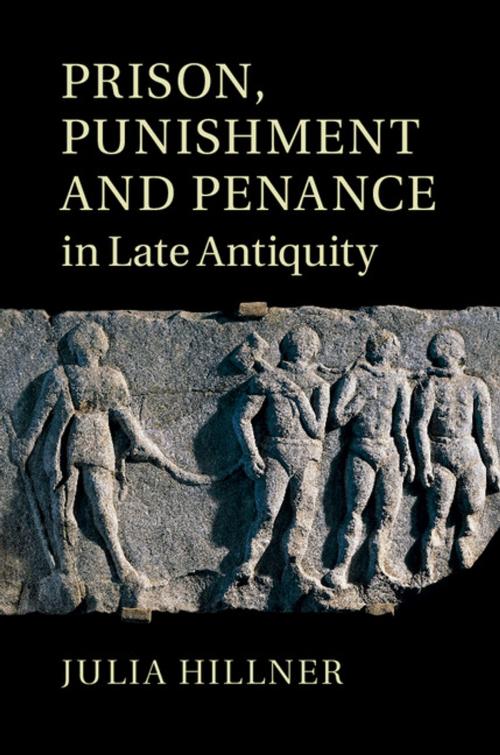Prison, Punishment and Penance in Late Antiquity
Nonfiction, History, Ancient History, Social & Cultural Studies, Social Science| Author: | Julia Hillner | ISBN: | 9781316287255 |
| Publisher: | Cambridge University Press | Publication: | June 5, 2015 |
| Imprint: | Cambridge University Press | Language: | English |
| Author: | Julia Hillner |
| ISBN: | 9781316287255 |
| Publisher: | Cambridge University Press |
| Publication: | June 5, 2015 |
| Imprint: | Cambridge University Press |
| Language: | English |
This book traces the long-term genesis of the sixth-century Roman legal penalty of forced monastic penance. The late antique evidence on this penal institution runs counter to a scholarly consensus that Roman legal principle did not acknowledge the use of corrective punitive confinement. Dr Hillner argues that forced monastic penance was a product of a late Roman penal landscape that was more complex than previous models of Roman punishment have allowed. She focuses on invigoration of classical normative discourses around punishment as education through Christian concepts of penance, on social uses of corrective confinement that can be found in a vast range of public and private scenarios and spaces, as well as on a literary Christian tradition that gave the experience of punitive imprisonment a new meaning. The book makes an important contribution to recent debates about the interplay between penal strategies and penal practices in the late Roman world.
This book traces the long-term genesis of the sixth-century Roman legal penalty of forced monastic penance. The late antique evidence on this penal institution runs counter to a scholarly consensus that Roman legal principle did not acknowledge the use of corrective punitive confinement. Dr Hillner argues that forced monastic penance was a product of a late Roman penal landscape that was more complex than previous models of Roman punishment have allowed. She focuses on invigoration of classical normative discourses around punishment as education through Christian concepts of penance, on social uses of corrective confinement that can be found in a vast range of public and private scenarios and spaces, as well as on a literary Christian tradition that gave the experience of punitive imprisonment a new meaning. The book makes an important contribution to recent debates about the interplay between penal strategies and penal practices in the late Roman world.















